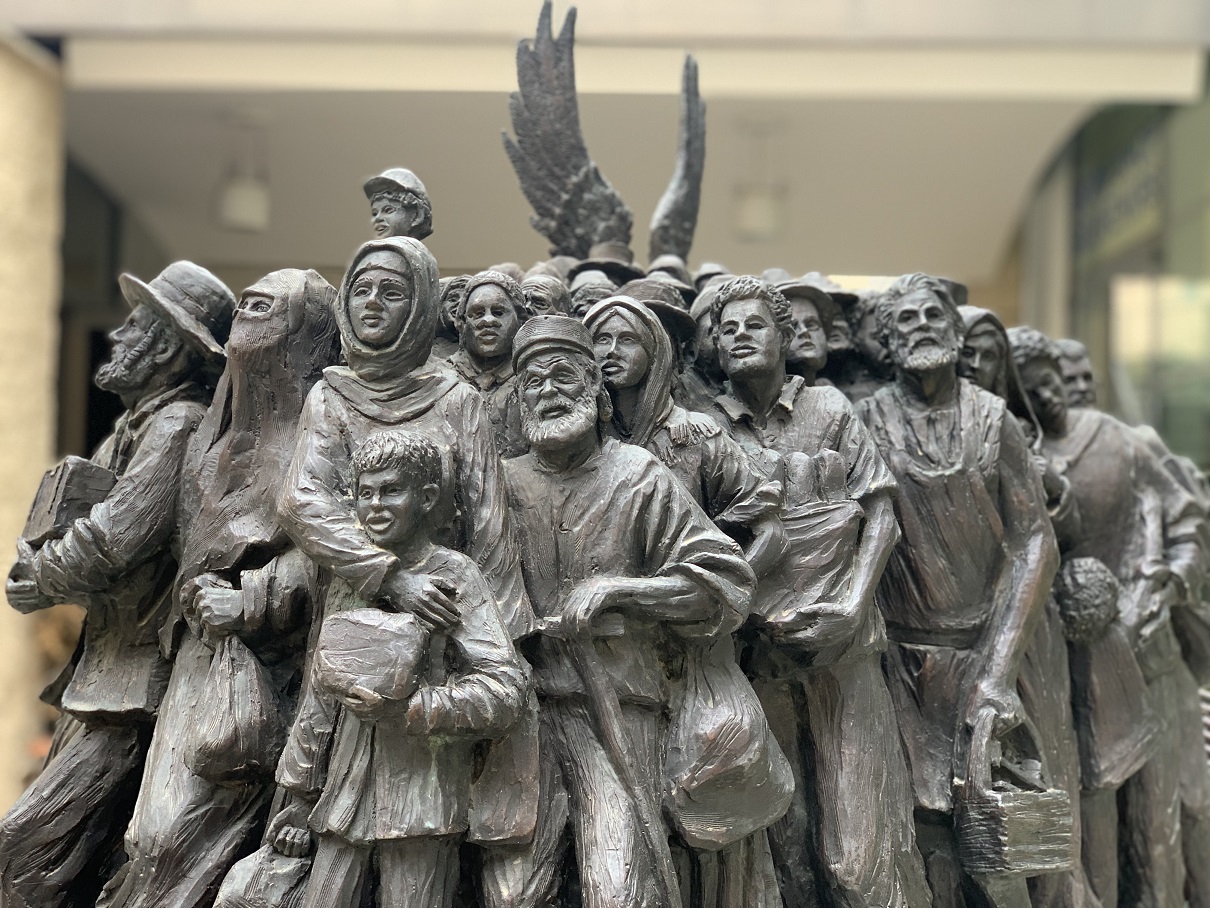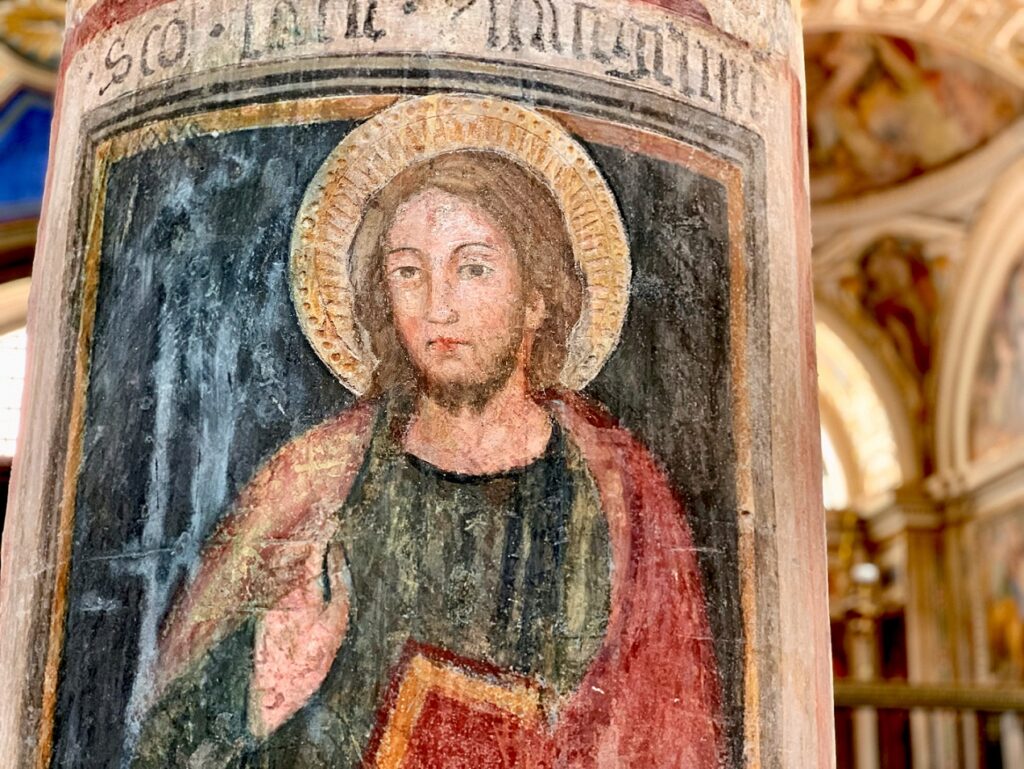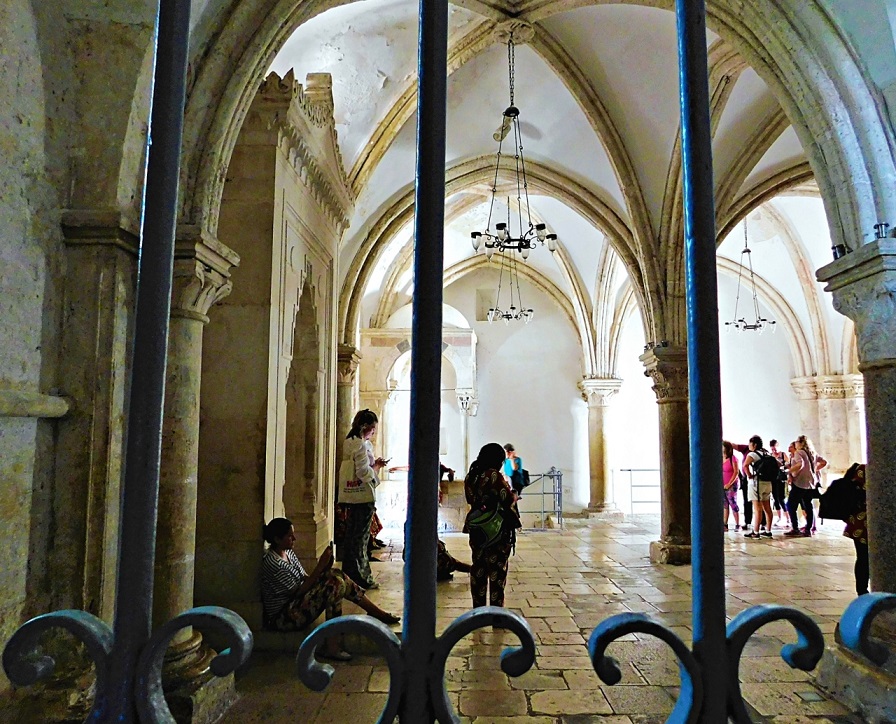#TomorrowIsSunday (EN+ES) | What kind of love is best?


Angels Unawares una escultura de Timothy Schmalz, Roma, photo sr. Amata CSFN
Fifth Sunday of Easter, Year C
Sunday, May 15, 2022
Gospel of John 13: 31-33a. 34-35
EN https://bible.usccb.org/bible/readings/051522.cfm
You can download the commentary on the Gospel and beautiful photos:
https://www.academia.edu/79091532/What_kind_of_love_is_best?source=swp_share
*
V Domingo de Pascua, Año C
Domingo, 15 de mayo del 2022
Evangelio de Juan 13: 31-33a. 34-35
ES https://bible.usccb.org/es/bible/lecturas/051522.cfm
1 The novelty of Jesus’ commandment
Willingness to do good for others is embedded in human nature and in every religion. But Jesus says that His commandment to love is new. So what is unique about Jesus’ commandment?
2 Key words
I give you a new commandment: love one another.
As I have loved you, so you also should love one another.
Jesus wants, not only for us to love one another, but for that love to be like His love. This is the “love of the Most.” The most beautiful, the best, and it is the most important thing in life.
In the original Greek of the gospel, the word “agapao” is used here, which means the highest degree of love that is willing to give its life for another person and forgive everything. Just like Jesus. He gave his life for each of us and from the cross he forgave. There is no love without forgiveness – this is stressed by people who have lived many years in marriage and are happy.
All will know that you are my disciples, if you have love for one another.
Jesus’ love is practical. It has its eyes open to the reality around it; it sees the needs of its neighbors and recognizes the good experienced from other people. At this time, a particular expression of mutual love becomes welcoming and helping refugees who are fleeing war and famine. Pope Francis’ message for this year’s World Migrant and Refugee Day includes a moving prayer:
“Lord, make us builders of your Kingdom,
together with migrants and refugees
and with all who dwell on the peripheries.
Lord, let us learn how beautiful it is
to live together as brothers and sisters. Amen.”
3 Today
Jesus invites us to love one another. Who gives me love in my daily life? For whose love am I especially grateful? Do I notice the love of God in my life? Who is waiting for my love? We can pray that our love will be like Jesus’.

Jesus Master, fresco in Basilica di Santa Maria Ara Coeli, Rome, photot: sr. Amata CSFN
*
1 La novedad del mandamiento de Jesús
Está en la naturaleza del hombre y de toda religión querer hacer el bien a los demás. Pero Jesús dice que su mandamiento del amor es nuevo. Entonces, ¿qué tiene de único el mandamiento de Jesús?
2 Palabras clave
«Les doy un mandamiento nuevo: que se amen los unos a los otros, como yo los he amado…».
Jesús quiere, no sólo que nos amemos unos a otros, sino que ese amor sea como el de Jesús. Este es el amor “al máximo”. El más bonito, el mejor y es este amor el más importante en la vida.
En el original griego del evangelio se utiliza aquí la palabra “agapao”, que significa el grado más alto de amor, que está dispuesto a dar la vida por otra persona y a perdonarlo todo. Al igual que Jesús. Él dio su vida por cada uno de nosotros y en la cruz perdonó. No hay amor sin perdón: esto lo subrayan las personas que han vivido muchos años de matrimonio y son felices.
«…y por este amor reconocerán todos que ustedes son mis discípulos. »
El amor de Jesús es práctico. Mantiene los ojos abiertos a la realidad que le rodea; ve las necesidades de sus prójimos y reconoce el bien que experimenta de otras personas. En este momento, una expresión particular del amor mutuo es la acogida y la ayuda a los refugiados que huyen de la guerra y el hambre. El mensaje del Papa Francisco para la Jornada Mundial del Migrante y del Refugiado de este año incluye una emotiva oración:
«…Señor, haznos constructores de tu Reino
junto con los migrantes y los refugiados
y con todos los habitantes de las periferias.
Señor, haz que aprendamos cuán bello es
vivir como hermanos y hermanas. Amén. »
3 Hoy
Jesús nos invita a amarnos unos a otros. ¿De quién experimento el amor en mi vida diaria? ¿Por el amor de quién estoy especialmente agradecido? ¿Noto el amor de Dios en mi vida? ¿Quién espera mi amor? Podemos rezar para que nuestro amor sea como el de Jesús.

Cenáculo, photo: sr. Amata CSFN
You can read also:
#TomorrowIsSunday (EN + ES) | How to hear Jesus? >>>
#TomorrowIsSunday (EN+ES) | What rebuilds a relationship with Jesus? >>>
#TomorrowIsSunday (EN+ES) | Why is this Sunday Compared to a “Second Baptism”? >>>
#TomorrowIsSunday (EN+ES) | Jesus’ greatest miracle >>>
#TomorrowIsSunday | What does Jesus write in the sand? >>>
#TomorrowIsSunday (EN+ES) | What is the scandal of mercy? >>>
#TomorrowIsSunday (EN+ES) | Why Does Jesus Pray? >>>
#TomorrowIsSunday (EN+ES) | What Should One Do when Tempted? >>>
#TomorrowIsSunday (EN+ES) | What Do a Hypocrite and a Mask Have in Common? >>>
#TomorrowIsSunday (EN+ES) | Why should we love our enemies? >>>
#TomorrowIsSunday (EN+ES) | Jesus’ Counsel Regarding Hatred Prompted by Faith >>>
#TomorrowIsSunday (En+ES) | In the Bible, what does it mean to be “fisher of men”? >>>
#TomorrowIsSunday (EN+ES) | Why is Nazareth a Tragic City? >>>
#TomorrowIsSunday (EN+ES) | Who is Theophilus for whom Luke wrote the Gospel? >>>



Dodaj komentarz